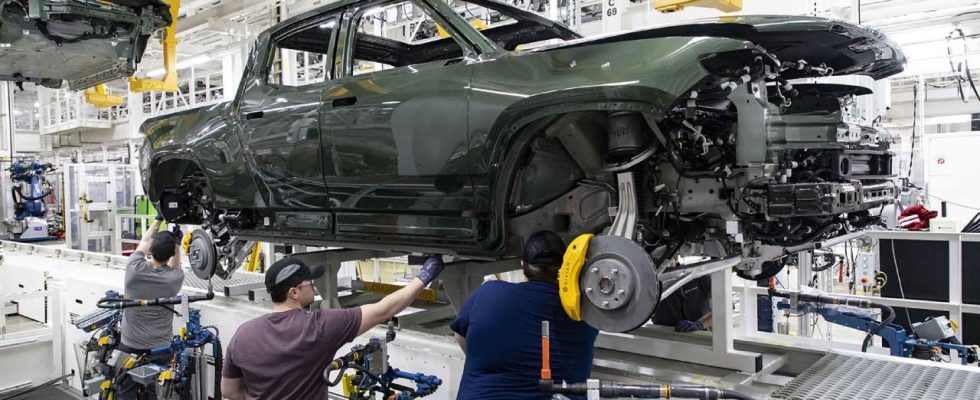USAin electric vehicle As the industry faces lower-than-expected demand, leading battery manufacturers are reducing their investments in North America and starting to lay off workers. For example, LG Energy Solution recently announced that it laid off 170 workers at its factory in Michigan.
LG Energy solution companies such as; It operates joint ventures with auto giants such as General Motors, Honda and Hyundai. At the same time, South Korean battery manufacturer SK On reduced production at its factory in Georgia and put workers on leave, despite the $11 billion agreement it signed with Ford in 2021. SK also laid off more than 100 workers at the same plant in September and delayed the opening of a second plant in Kentucky, a joint venture with Ford, scheduled to be operational in 2026.
Lee Hang-koo, President of Jeonbuk Automotive Convergence Technology Institute, on the situation in the industry, “The market seems to be going through a correction. “As too much investment has been made in the sector in a very short time, the concern over capacity is increasing.” He made evaluations as follows:
State suspends plans to expand production capacities
With the help of tax credits under President Joe Biden’s climate legislation, South Korean battery companies are forming partnerships with automakers in North America. USAin electric vehicle It follows a parallel course with their integration into production. However, companies such as Ford, GM and Tesla have suspended plans to expand their electric vehicle production capacity due to lower-than-expected consumer demand.
LG Energy solution, said it plans to hire approximately 1,000 more workers upon completion of its plant expansion in Michigan. However, UBS battery analyst Tim Bush stated that the decline in demand belongs especially to legacy automakers Ford and GM. announced that they reduced their US electric vehicle market growth forecasts from 45 percent to 10 percent.
“They sell SUVs, pickup trucks, and cars that cost more than $80,000, but there are very few options as entry-level or mass-market vehicles,” Bush also said about the lack of demand for affordable electric vehicles.
As a result, Bush stated that South Korean and Japanese automakers and Tesla can better overcome market challenges thanks to their large stocks of hybrid and electric vehicles and their cooperation with battery manufacturers.
Japanese Panasonic, on the other hand, announced that it has reduced battery production for more expensive Tesla models, but continues to invest in its Nevada factory in the USA for more economical Teslas covered by IRA. The company is also evaluating the possibility of building a third US factory in addition to the second facility it is building in Kansas.
Atul Goyal, one of Jefferies analysts, said in his assessment on this issue: “They (Panasonic) do not have to make cuts. They have to scale up. “Now they have to make plans for a third factory,” he said.
You may be interested in: The USA allocates a huge budget for electric vehicle battery production!
